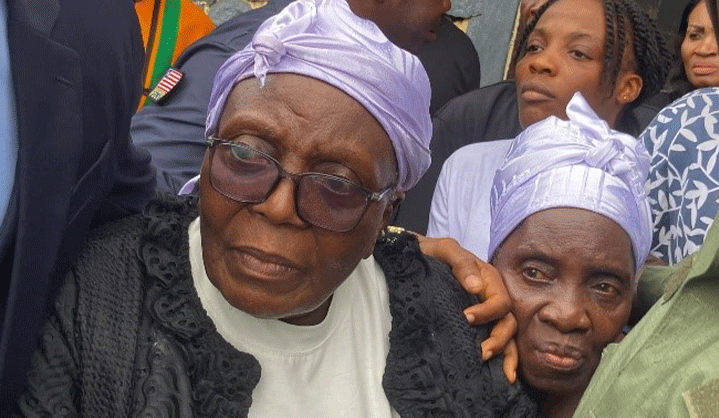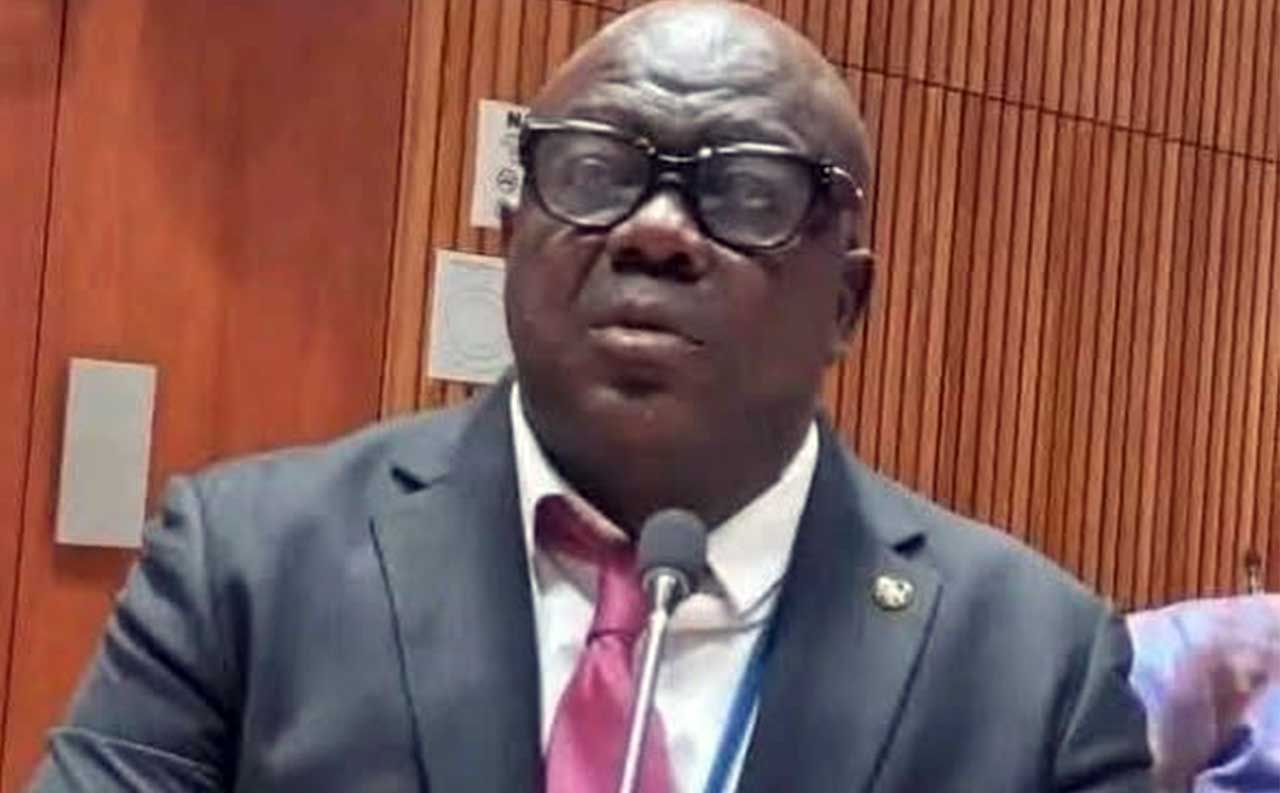It was all tears of joy on Wednesday, August 28, 2024 afternoon when the Honorable Supreme Court of Liberia overturned the life sentence imposed by Criminal Court ‘A’ Judge Roosevelt Willie on former Chief Justice Gloria Musu Scott and three of her relatives in connection with the death of Charloe Musu.
Delivering the verdict, Chief Justice Sie-A-Nyene Yuoh said there was insufficient evidence to link the former Chief Justice and her relatives to the crimes.
With that Chief Justice Yuoh reversed the final ruling of Judge Roosevelt Z. Willie who confirmed the verdict of the trial jury.
“Wherefore, and in view of the foregoing, the final ruling of the trial court confirming the verdict of the jury is hereby reversed.
Gloria Musu Scott, Ma Rebecca Youdeh Wisner, Getrude Newton and Alice Johnson are ordered immediately released from further detention at the Monrovia Central Prison and their civil rights, liberties and all other constitutional and statutory rights are hereby immediately restored,” said the Supreme Court judgment.
After examining the facts surrounding the case and arguments put forth, Chief Justice Yuoh stated that it is the law that the standard of proof to warrant a conviction in a criminal case is proof beyond a reasonable doubt and that throughout the trial, the State bears the burden of establishing all elements of the crimes charged by the said standard of proof. She further said in the instance where reasonable doubt is inferred from the evidence by the prosecution, the defendant in a criminal case is entitled to an acquittal.
Also, the Chief Justice mentioned that a verdict presented by the jury may be set aside, where the verdict is contrary to the weight of the evidence.
According to her, the state relied on circumstantial evidence but failed to meet the standard as required by law to connect link by link the chain needed to lead any reasonable mind to the conclusion of guilt, that Cllr. Scott along her relatives did murder Charloe Musu adding that the guilty verdict returned by the jury was against the weight of the evidence and is set aside.
Another contradiction the Chief Justice cited was that the autopsy conducted by two Liberian pathologists, Dr. Benedict Kolee and Dr. Zoebon Kpadeh, clearly proved that male chromosome was discovered in the fingers of the deceased but sadly all of those who were accused to have committed the crimes were all females.
Therefore, Justice Sie-A-Nyene Yuoh said the state did not meet the burden of proof to warrant the conviction of the defendants.
“Therefore, the defendants are hereby acquitted of the crimes of Murder, Criminal Conspiracy, and Making False Alarm to Law Enforcement Officials charged in the indictment,” Chief Justice Youh ruled.
Judge Roosevelt Z. Willie of Criminal Court ‘A’ had previously found Cllr. Scott and three of her family members guilty of murdering her niece, Charloe Musu, at her residence in Brewerville, outside Monrovia but the defendants subsequently appealed the lower court’s guilty verdict to the nation’s high court.
Following the ruling, family members of Justice Scott burst into massive jubilations, singing praises to God Almighty for the acquittal verdict of their relatives that were sentenced to life imprisonment. At the Monrovia Central Prison (South Beach), family members of Cllr. Scott trooped in to receive their family members.
During the Supreme Court hearings, which took place on July 16, 2024, the prosecution’s case, led by Cllr. Bobby Livingstone, was primarily based on circumstantial evidence. Livingstone admitted that the state’s case lacked direct evidence, relying instead on the inference that the defendants were guilty because they failed to identify the actual perpetrator. Despite nearly three hours of argument, the justices expressed significant concerns about the validity of the circumstantial evidence presented.
Chief Justice Sie-A-Nyene Yuoh and Associate Justice Jamesetta Howard Wolokolie rigorously questioned the prosecution on critical aspects of the case, including the plausibility of all the defendants having simultaneously committed the crime and the lack of clear identification of the weapons used. The prosecution’s inability to provide concrete answers to these questions and the absence of definitive forensic evidence, such as a conclusive DNA analysis, led to the justices’ doubts about the defendants’ guilt.
When the case was called for judgment, the state was absent without any excuse. As a result, the Solicitor General (SG) was personally fined US$100, and the Ministry of Justice (MOJ) was fined US$200, both of which must be paid within 72 hours.
The Supreme Court was filled to capacity with members of the public eager to hear the final verdict. Among those in attendance were several members of the Legislature, including Gbe-blo Brown of Maryland County, Boto Kanneh of Gbarpolu County, former Senator Commany Wesseh, and Josephine Francis, the former Representative of Montserrado County District One.
Representing the defense, impeached Associate Justice Kabineh Ja’neh argued that the state failed to establish a strong prima facie case, emphasizing the absence of eyewitnesses and highlighting inconsistencies in the forensic evidence.
He also questioned the expertise of the government’s pathologist. These arguments ultimately convinced the Supreme Court that the life sentences imposed by the lower court were unwarranted, leading to the acquittal of all defendants.



